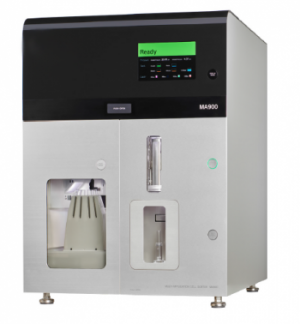
The Flow Cytometer: One Step Closer to Unlocking the Mysteries of Cancer
As researchers around the world race to discover new approaches to treating cancer, many believe the answer lies in tailoring treatment specifically to the individual patient, a practice called personalized medicine.
Now, thanks in part to donors to the Ottawa Regional Cancer Foundation and The Ottawa Hospital, new possibilities for personalized medicine can be explored here in our community: The Ottawa Hospital was recently able to purchase a new Flow Cytometer Cell Sorter, a vital piece of equipment that will help accelerate local cancer research in the areas of immunotherapy and biotherapeutics.
The Flow Cytometer (pictured above) is a machine that can sort through a patient’s cells to separate and analyze them more closely. Researchers hope this will help them better understand and target immune cells to help a patient’s body fight their own cancer, as they look to learn why some cancer patients can be cured with immunotherapy treatments while others succumb to their disease. If some patients’ immune systems can be called into action to completely destroy a cancer, why isn’t it working for others?
Acquiring this Flow Cytometer Cell Sorter is allowing researchers at The Ottawa Hospital to turn an exciting page in their work. They believe this tool will help them discover when, how, and why the therapies they are studying are working, and how to develop new therapies that can help more patients.
“Each patient has the power to kill their own cancer with their immune system,” says Dr. Rebecca Auer, Director of the Cancer Therapeutics program at The Ottawa Hospital Research Institute. “We’re confident this tool will help us to figure out how to unleash that power.”
The purchase of the Flow Cytometer is just one project the Cancer Foundation is helping to fund at The Ottawa Hospital, in order to accelerate local research into personalized medicine. We look forward to sharing more about how these projects are supporting the work of local researchers as the year goes on!
